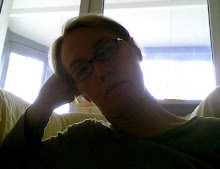Unfortunately the calculation of the results has become a topic of debate. The EBU claims to have optimized their rules and published a set of rules for the 59th edition of Eurovision Song Contest in 2013.
In 1.1.3 the process of scoring is described as the audience can follow during the show in front of their televisions. The result is calculated from 50% jury and telephone voting.
2013 a change was made: Until 2012 they charged only the top ten of telephone voting and jury. Since 2013 all songs have to be valued. A Romanian blogger 2013 described the effect in detail with reference to the Italian votes. It strikes that the Romanian representative, countertenor Cezar, was chosen by the Italian public with 12 points as No. 1. In combination with the votes of the jury he finally got 0 points. When asked who the jury experts are: "All
male, no musician (contradicting EBU rules), president is journalist at right-wing newspaper ".
Until 2012 the 5 members of the jury could weaken the outcome of the telephone votes, now they can delete public voice. One has to consider that the mass of telefonvoter pays for each of their calls, the few members of the
jury, however, are (probably) paid. To put it precisely: The EBU collects the money of public and then can make their votes invalide. As long as the EBU does not clearly points out these conditions to the audience it is deception or even fraud.
The European data of telefonvoter and jury all run in a single private company, to be precise to Digame Mobile GmbH in Cologne. Digame collects and distributes all votes before the results are presented on TV. They are only observed by German company PWC. To really exclude any doubt a notary from each participating country should be sent to Germany to control Digame. Otherwise there are still gray areas for internal agreements. Who controls that the German company Digame, here "the Pan-European Televoting-Partner" does not manipulate the results at the end? I want to remind that the Ministers of Foreign Affairs of Russia and Azerbaijan found themselves compelled to intervene in
2013. Their demand that Digame has to publish the results was denied. Why?
With this calculation the reference group expresses actually their contempt of public opinion. That they do not completely abolish telephone voting has probably to do with the fact that they still want to make business with the big telephone companies. And with referring to (probably) manipulated results of telefonvoting the music industry can decieve us that some songs are popular.
In any case the changes of calculating the points disadvantages audience and musicians. The new rule, that the jury have rank ALL songs, is obviously only for statistical purposes. It has nothing to do with valuation and estimation of music.
At least this mixed results do not give musicians useful feedback of their consumers. One solution would be to nominate 2 winner.
Next - The Jury
:::



